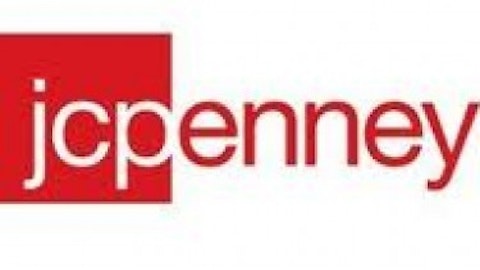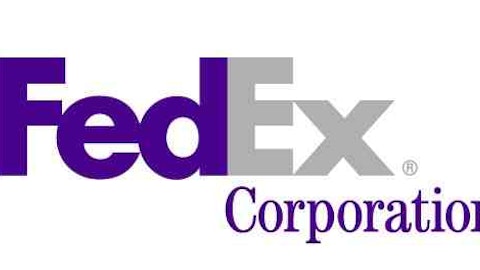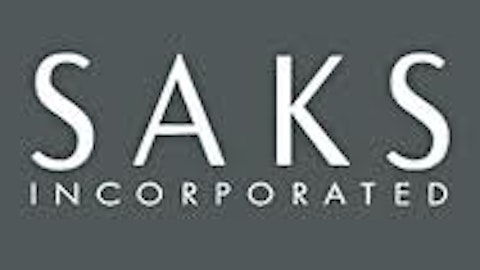This series, brought to you by Yahoo! Finance, looks at which upgrades and downgrades make sense, and which ones investors should act on. Today, our headlines feature picks from the retail industry, where Macy’s, Inc. (NYSE:M) and Nordstrom, Inc. (NYSE:JWN) have both just suffered downgrades, while newcomer RetailMeNot , on the other hand, picks up a new buy rating. Let’s take those one at a time.
No more magic at Macy’s, Inc. (NYSE:M)
Analyst Maxim Group took an intense dislike to both Macy’s, Inc. (NYSE:M) and Nordstrom this morning, announcing downgrades for each. In Macy’s, Inc. (NYSE:M) case, it’s a downgrade to “hold,” with the analyst warning of “weak apparel sales and a promotional environment” in retail generally, while opining that Macy’s, Inc. (NYSE:M) in particular looks “fully valued” and unlikely to move higher.
Indeed, with Maxim now cutting its profits estimate at Macy’s, Inc. (NYSE:M) to $0.74 for the second quarter, $3.91 for the full year, and $4.29 next year, Maxim might even argue that the shares could move lower instead… but I don’t think so.
Consider: At 14 times earnings today, Macy’s shares really don’t look all that overvalued. True, Maxim’s new earnings estimate suggests profits will grow only 10% between this year and next. However, the consensus of analysts who follow the stock is that long-term growth will average 13% annually. Add in a modest 2.1% dividend yield, and 14 times earnings really doesn’t seem like too much to pay for the stock.
The more so when you consider how much more real free cash flow Macy’s generates than it gets to report as GAAP earnings. Over the past year, Macy’s generated $1.7 billion in free cash flow — 24% more than reported GAAP net income. With a resulting price-to-free cash flow ratio of less than 11, I think the stock is bargain priced at 13% long-term growth — or with the dividend, even at 10%.
Maxim immune to Nordstrom, Inc. (NYSE:JWN)‘s “Youphoria”
Maxim has similar reservations about Nordstrom, Inc. (NYSE:JWN). This morning, the analysts downgraded Nordstrom, Inc. (NYSE:JWN) from “buy” to “hold,” lowering its price target to $63 in the process. Quoted on Streetinsider.com, Maxim again cited “low apparel sales” as underlying its downgrade, again cut its earnings estimates (to $3.77 this year and $4.38 next year), and — just as with Macy’s — warned that Nordstrom, Inc. (NYSE:JWN) shares are looking “fully valued.”
Here, I think the analyst has a stronger case. Priced north of 16 times earnings and growing less than 12% per year, Nordstrom, Inc. (NYSE:JWN) is at once more expensive than Macy’s and a slower grower.
What’s more, with only $548 million in trailing free cash flow (25% lower than reported net income), Nordstrom, Inc. (NYSE:JWN) lacks a free cash flow argument on which to hang its valuation. Indeed, with a price that’s 21 times trailing free cash flow, this department store actually looks more expensive when valued on cash profits than it does when valued on accounting profits.
In short, as wrong as Maxim appears to be about Macy’s being fully valued, it’s right on the money about Nordstrom. This stock, at least, deserves its downgrade.
RetailMeNot on sale?
The day’s not entirely devoid of good news for stock shoppers, however. This morning, the quiet period on investment banking underwriters of the July RetailMeNot IPO ran out, and the buy ratings began rolling in. In quick succession, each of Stifel Nicolaus, William Blair, Credit Suisse, RBC Capital, Morgan Stanley, and Jefferies & Co. initiated coverage on the stock — most with positive ratings.
Jefferies had the most positive report, calling RetailMeNot “one of the best positioned [companies] in the large and under-penetrated digital couponing space,” predicting “meaningful upside from current stock price levels,” and establishing a $40 price target.
That sounds pretty good. However, investors need to be aware that this is not a stock without risks. Consensus growth rates on RetailMeNot are still hard to come by at this early stage in the game. But wherever they ultimately shake out, the number’s going to have to be awfully big to justify the 65-times-earnings valuation at RetailMeNot, or even the lower, but still optimistic, 37 times free cash flow that the stock costs.
A continuation of the 53% rise in earnings that RetailMeNot posted between 2011 and 2012 may be fast enough to support this valuation. The big question for investors, however, will be how much longer RetailMeNot can keep up this pace. Until we know the answer to that one, however, caution should remain the order of the day.
Fool contributor Rich Smith has no position in any stocks mentioned. The Motley Fool has no position in any of the stocks mentioned.
The article Tuesday’s Top Upgrades (and Downgrades) originally appeared on Fool.com is written by Rich Smith.
Copyright © 1995 – 2013 The Motley Fool, LLC. All rights reserved. The Motley Fool has a disclosure policy.






